Mostly known as an ornamental, bronze fennel's undoubtedly attractive, but it's real power is as an herb that tastes like licorice. Few chefs know of it, but it's one of my secret weapon herbs and by far my favorite of the Foeniculum vulgare clan. If you're into obscure herbs that taste like licorice, you have to try it.
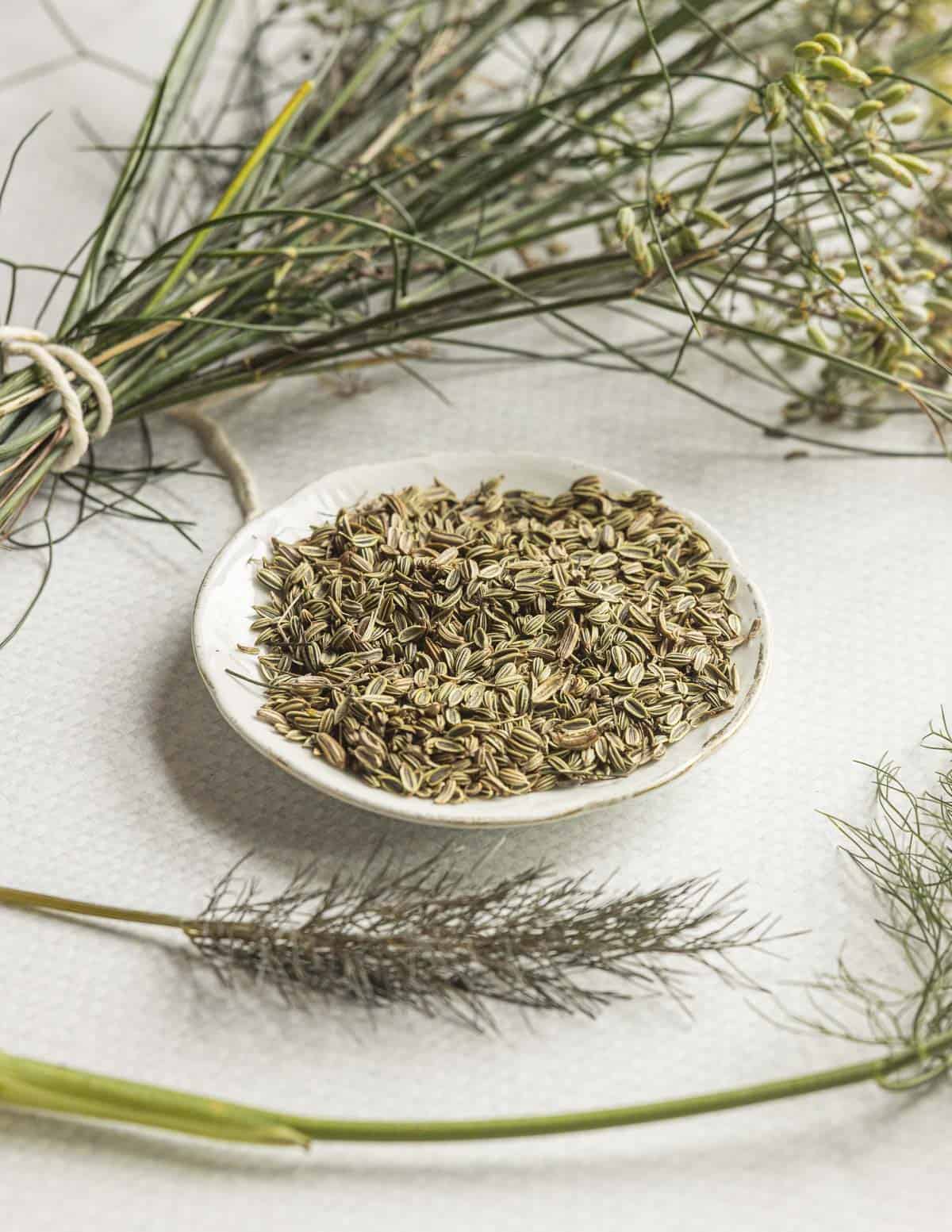
Background
Bronze fennel (Foeniculum vulgare purpureum) is an herbaceous perennial, and cultivar of bulb fennel (Foeniculum vulgare). References are scarce, but, as it's usually grown as an ornamental, I'd wager it originated from people saving seeds from plants that occasionally produced bronze and purple-ish foliage.
I learned about the plant from my friend Dotty Bacon, who grows the plant in her lush herb and flower garden near Menomonie Wi. Even in the cold north, I'd notice the occasional volunteer from the plant re-seeding in the fall. One taste and I was surprised by the noticeable licorice flavor.
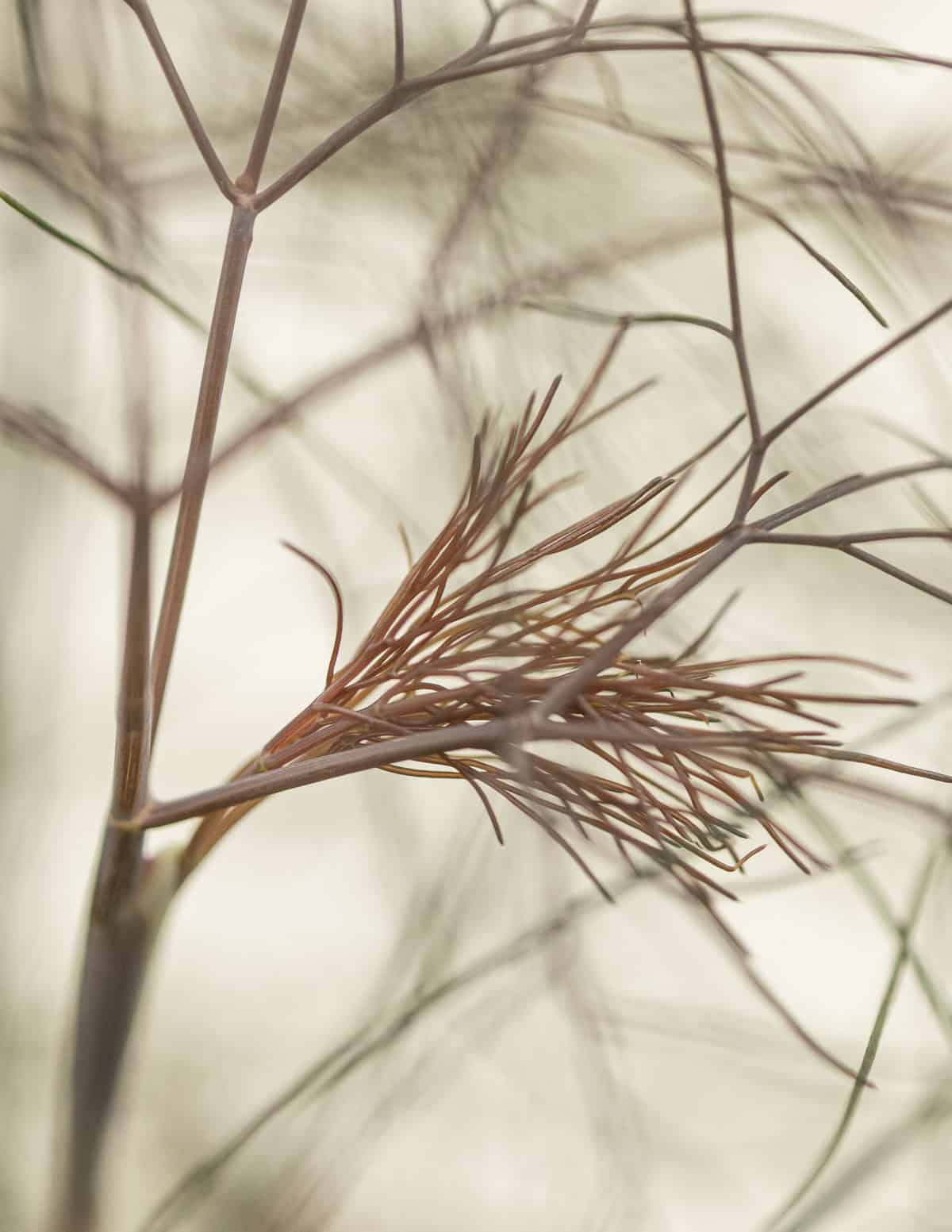
It makes an attractive, novel plant for an herb garden. Besides being attractive to humans, I've noticed black swallowtail butterfly caterpillars seem to love it, as well as my dill.
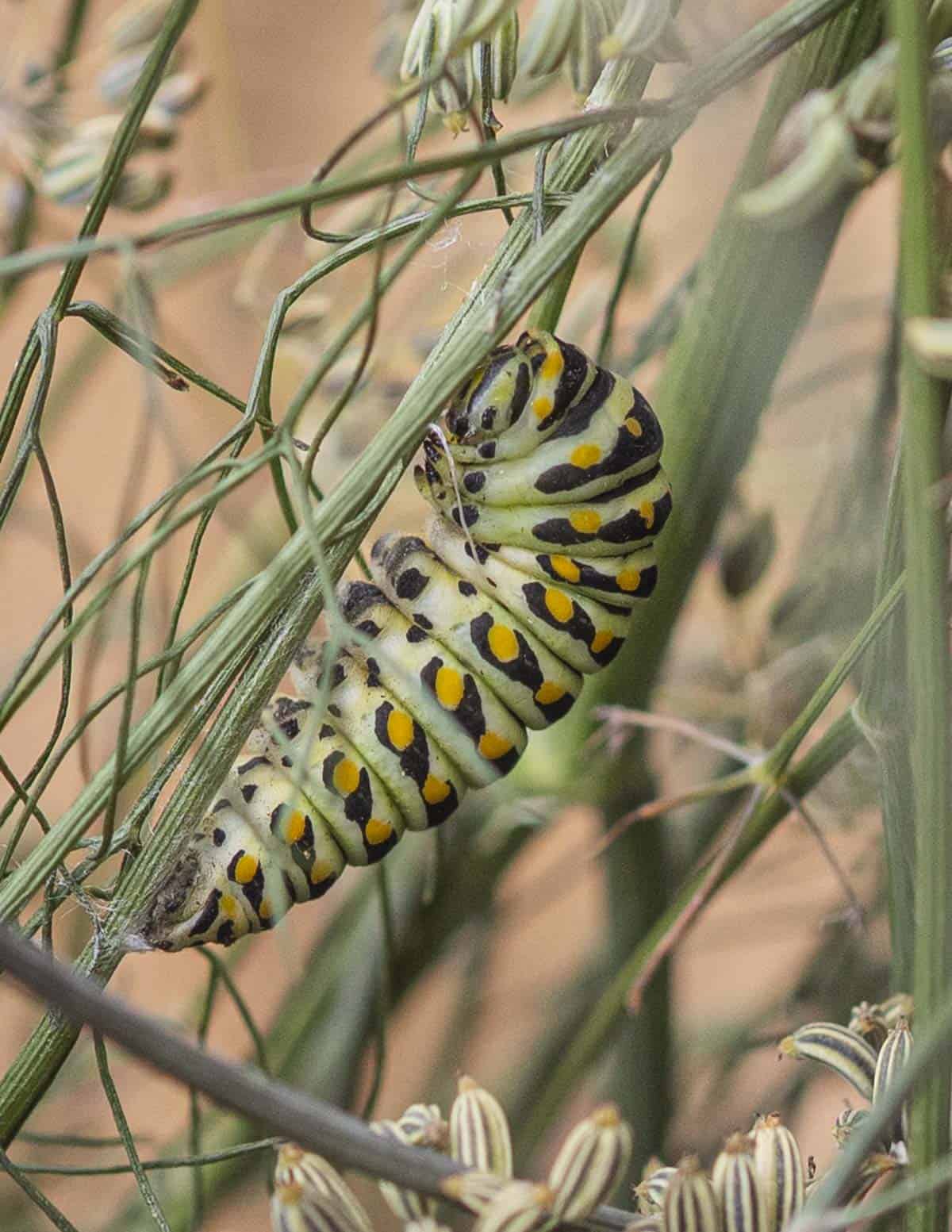
Growing and Harvesting
Just like wild fennel, bronze fennel is a heavy self-seeder and invasive in warmer climates. In northern areas with cold winters like Minnesota where I live it isn't an issue, and there's a few greenhouses like Tonkadale west of the Cities that sell bronze fennel seedlings.
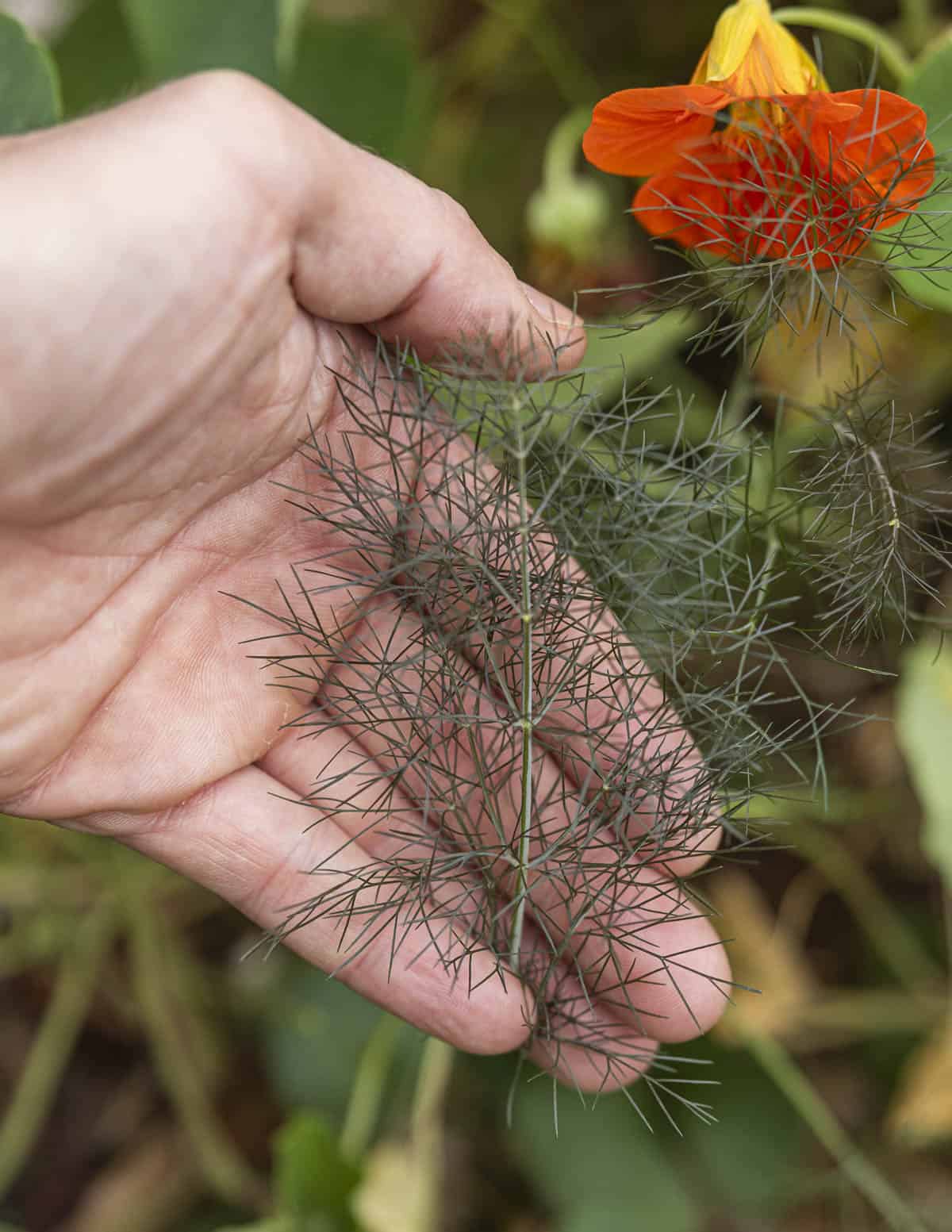
It likes full sun and well-drained soil, and has been right at home in the sunny herb garden I keep in the backyard. Unlike basil and cilantro, I've avoided planting it next to tomatoes, nightshades and legumes as it's known to be mildly allelopathic and can hinder their growth.
Like wild fennel, bronze fennel grows quite tall. Mine are usually three to four feet before they bow to the ground, heavy with seeds in late summer.
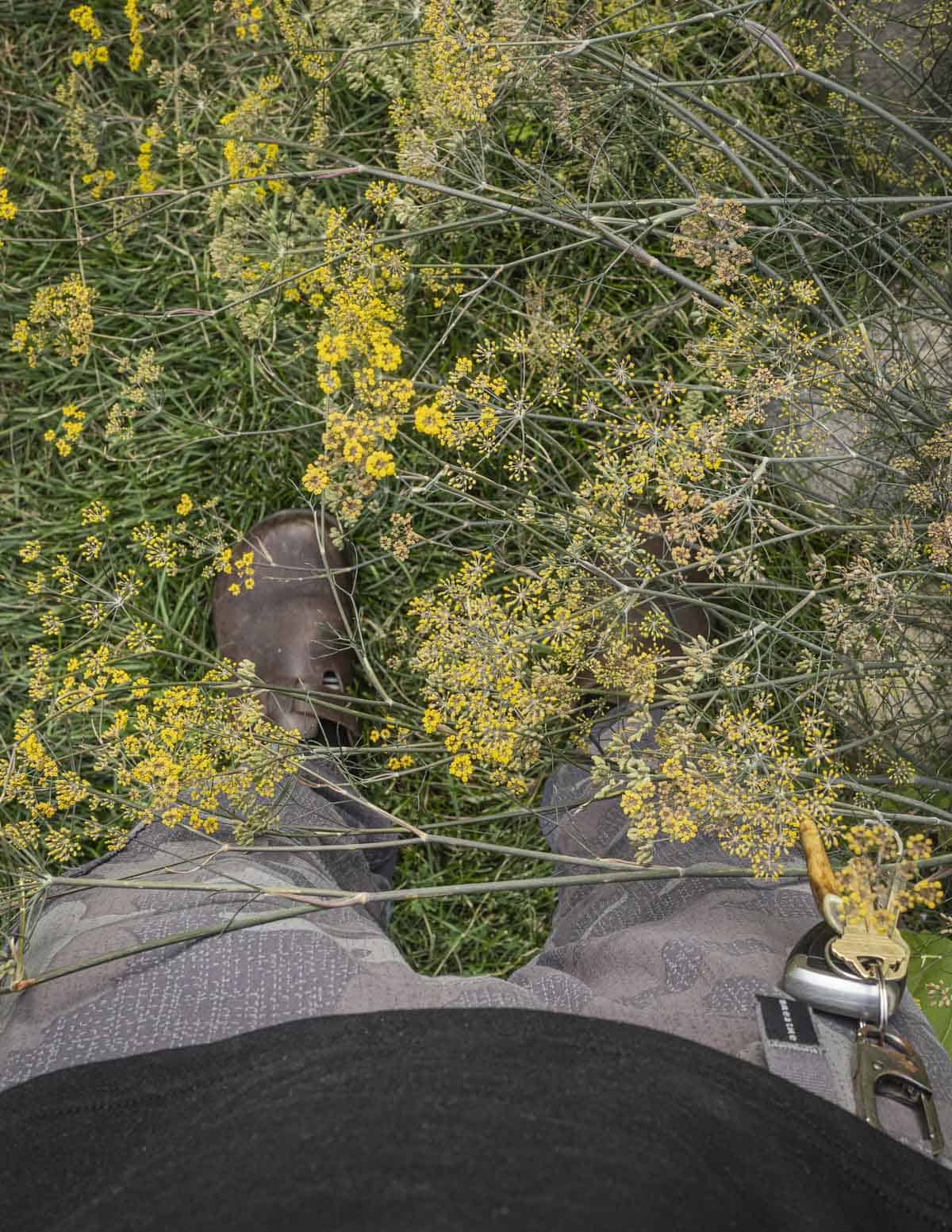
The young, purple or deeply colored fronds have a licorice flavor that will intensify as the plant grows. As the yellow flowers appear and green seeds develop, the fronds often turn green and take on a vegetal taste of typical fennel fronds.
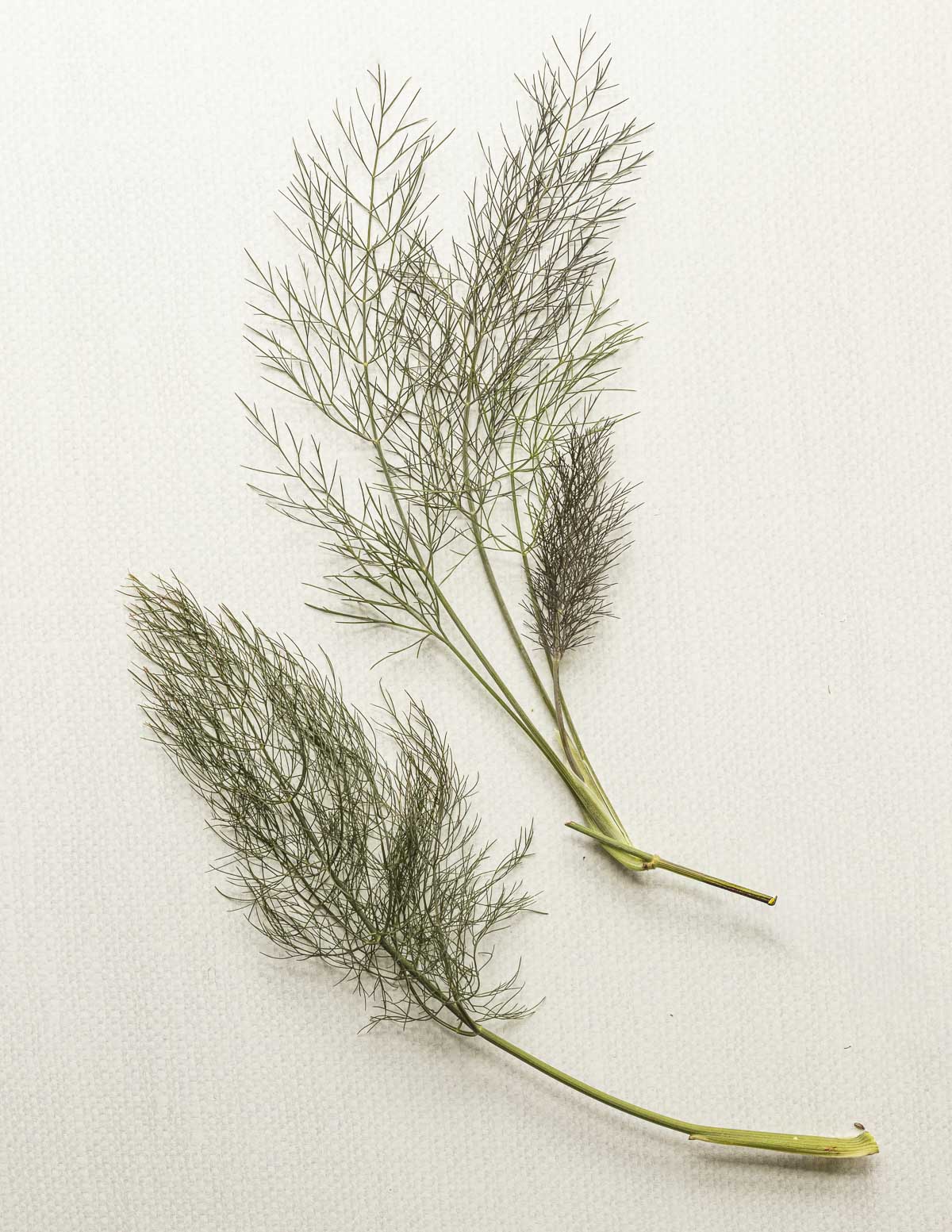
I haven't cooked the fronds yet as I value the plant too much as an herb, but if you have enough of them they could be boiled to make fennel cakes.
Just like wild fennel it doesn't produce a bulb, but the whole plant is edible: flowers, pollen, fronds mature and unripe seeds.
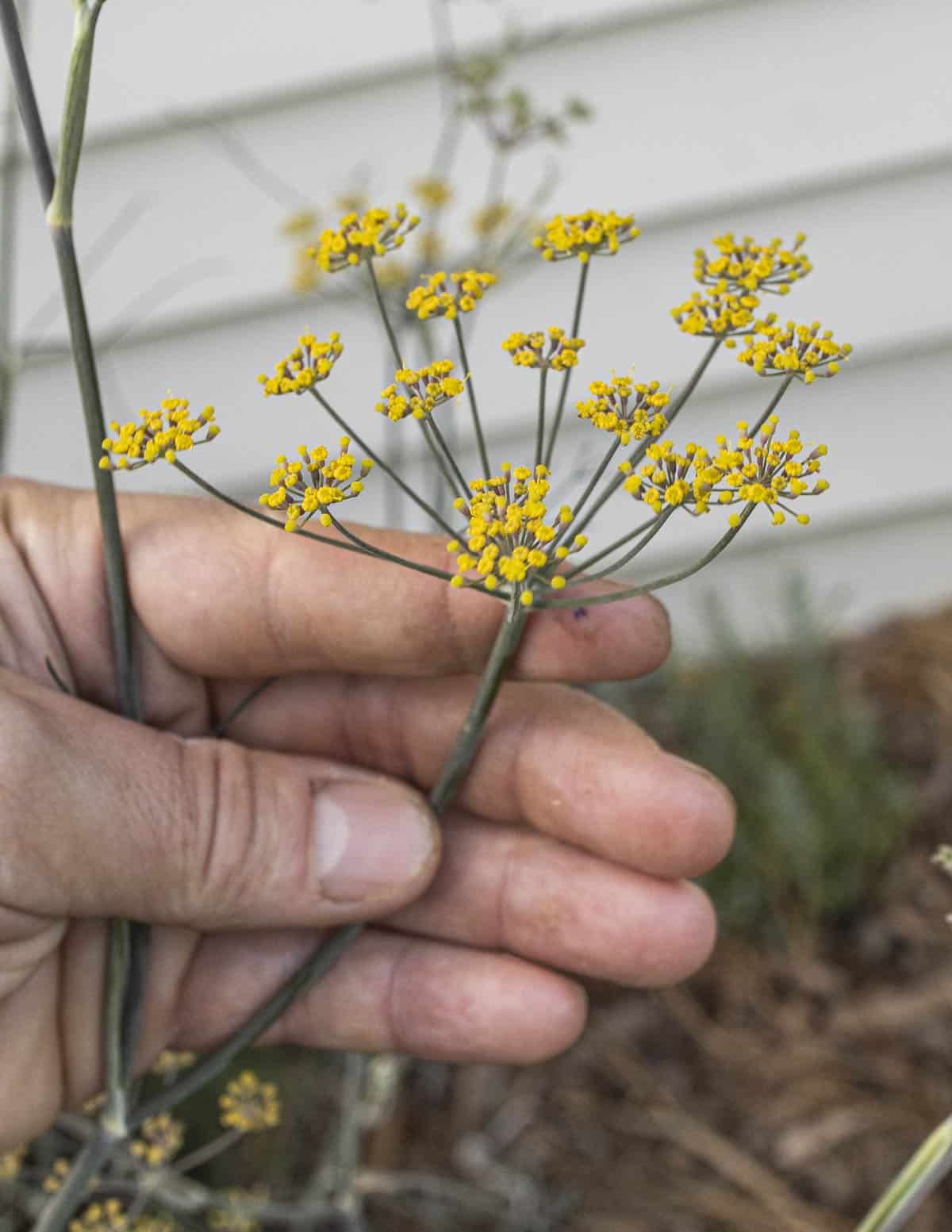
For me at least, the prize is the fronds I use as an herb and the seeds, which are the best substitute for the wild California fennel I've found.
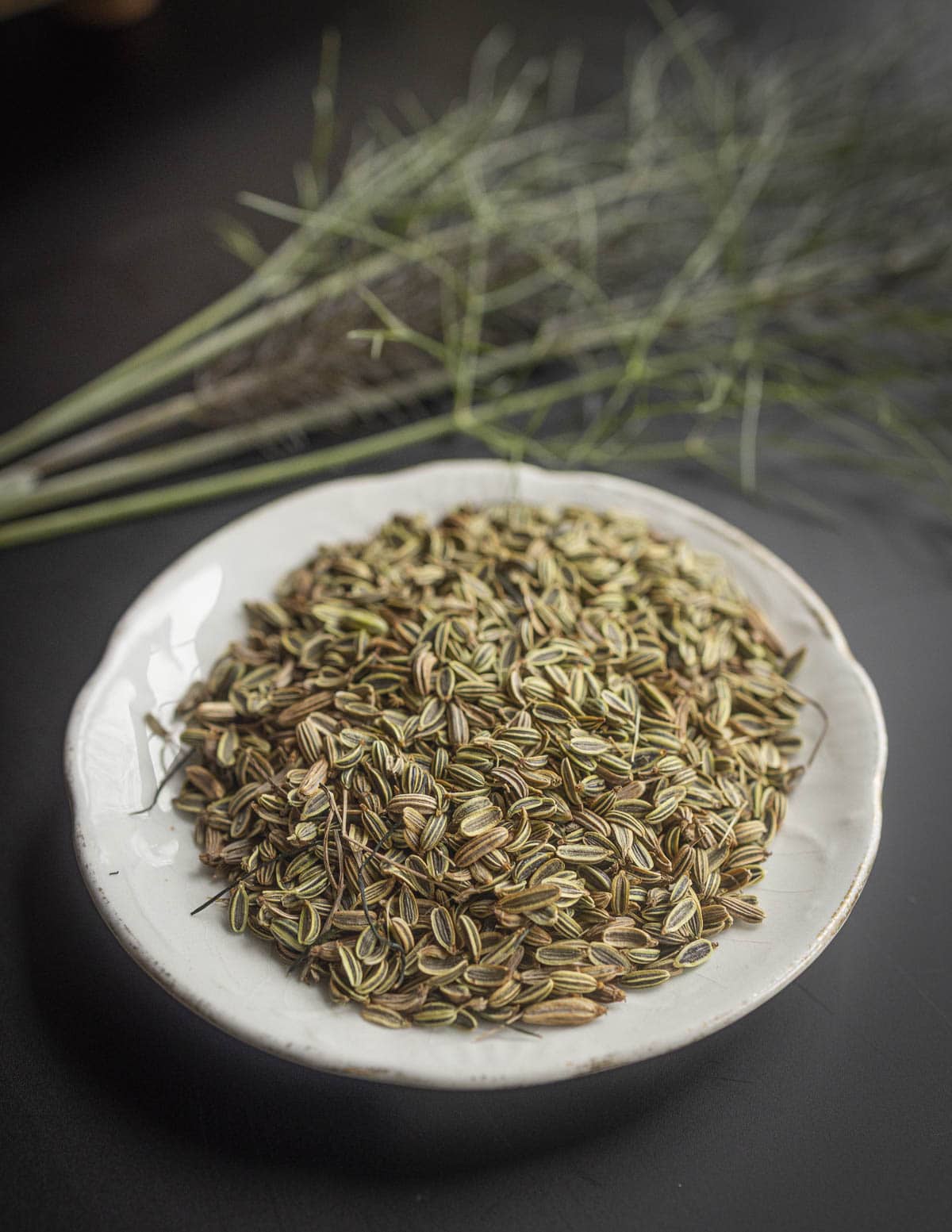
Conventional fennel seed is aromatic, with a savory licorice flavor. Wild fennel seeds from the West Coast are noticeably sweeter. Bronze fennel is somewhere in between, making it the best substitute for wild fennel I've found.
To harvest the seeds I clip the seed heads when I see they're beginning to dry on the plant, placing them on a tray in a dry area until they've all dropped, or simply rub the seed heads between my fingers to collect them. I've also simply cut down whole plants and hung them to dry in the garage with a tray underneath to catch the seeds.
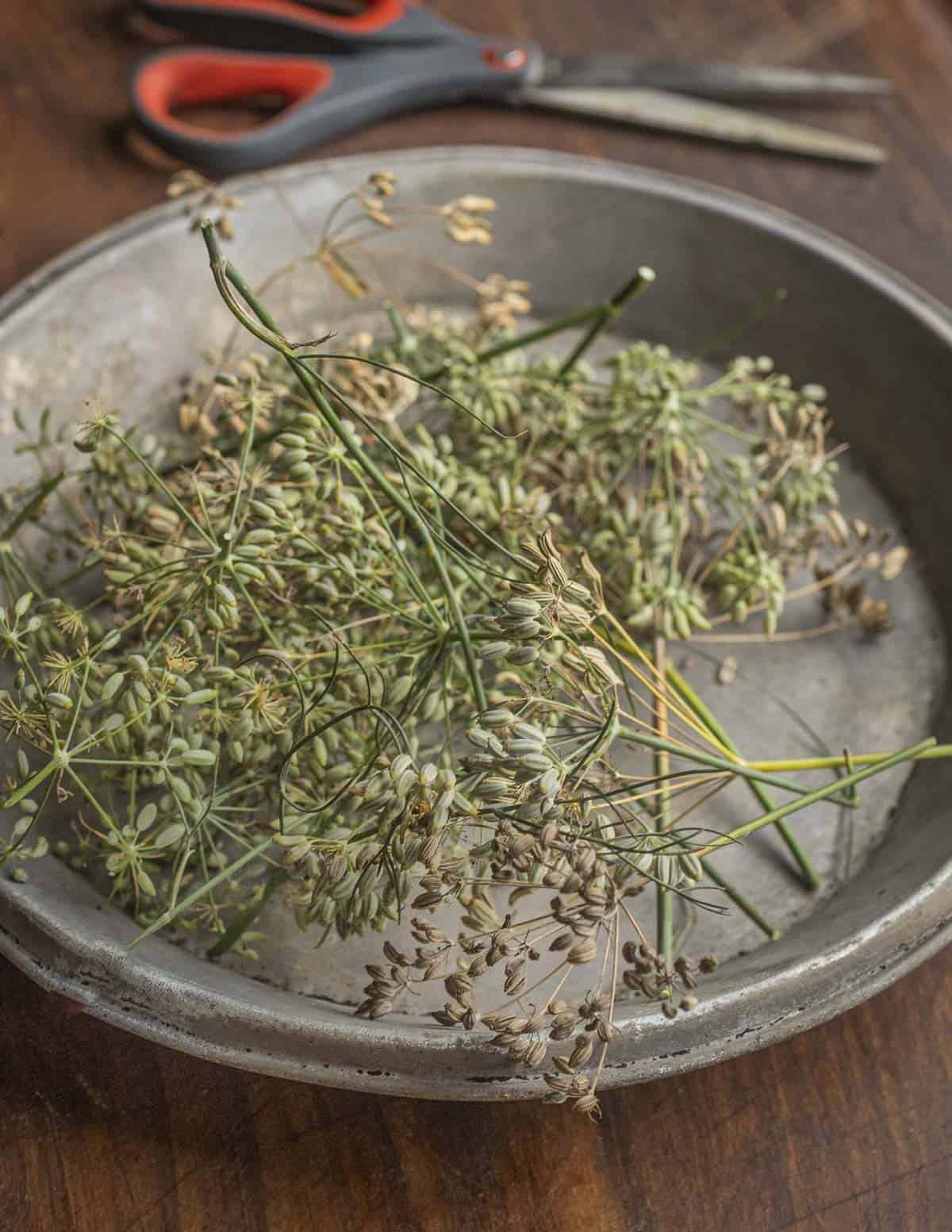
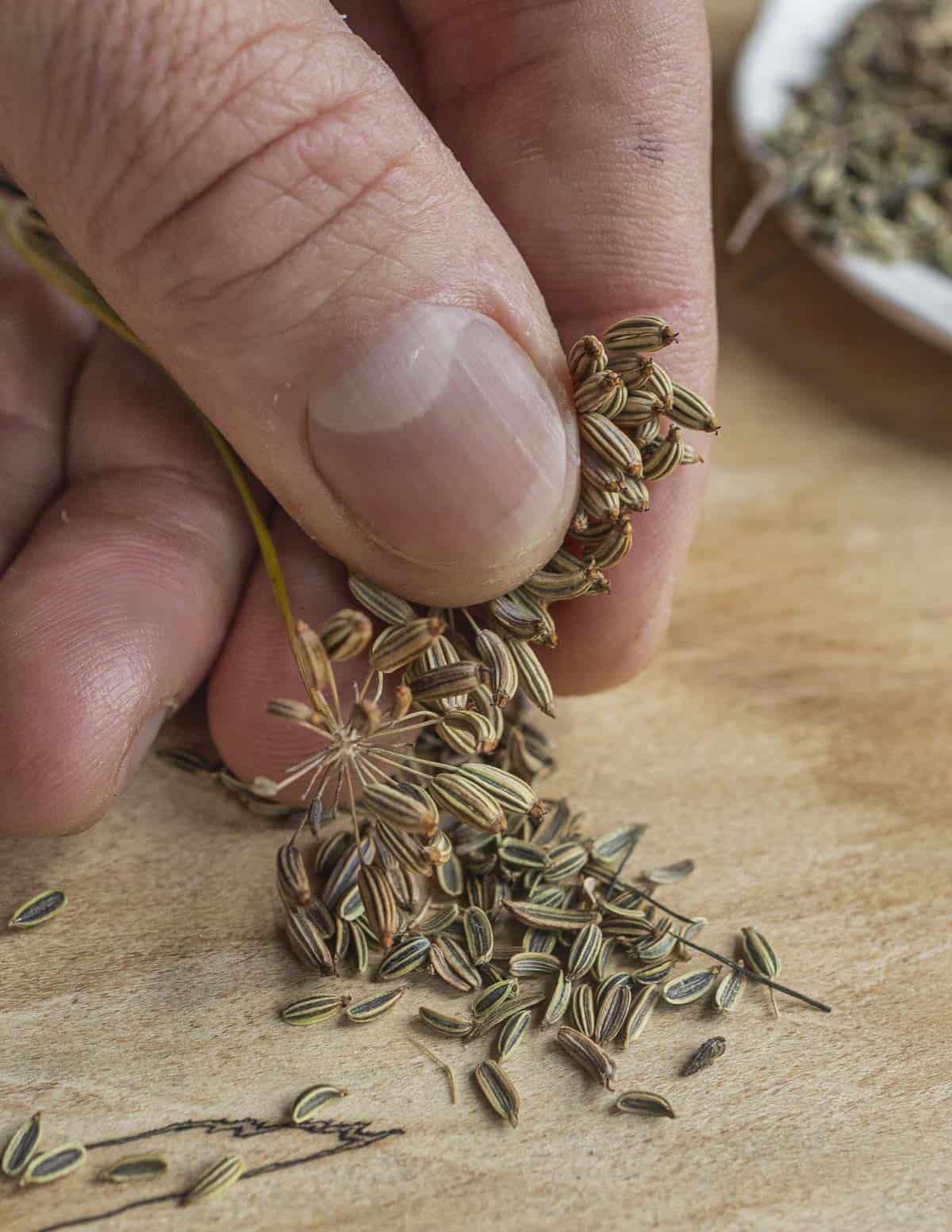
Besides the mature seeds, I also use the green, unripe seeds anywhere I'd use dried fennel seeds. I do the same thing with green coriander and caraway.
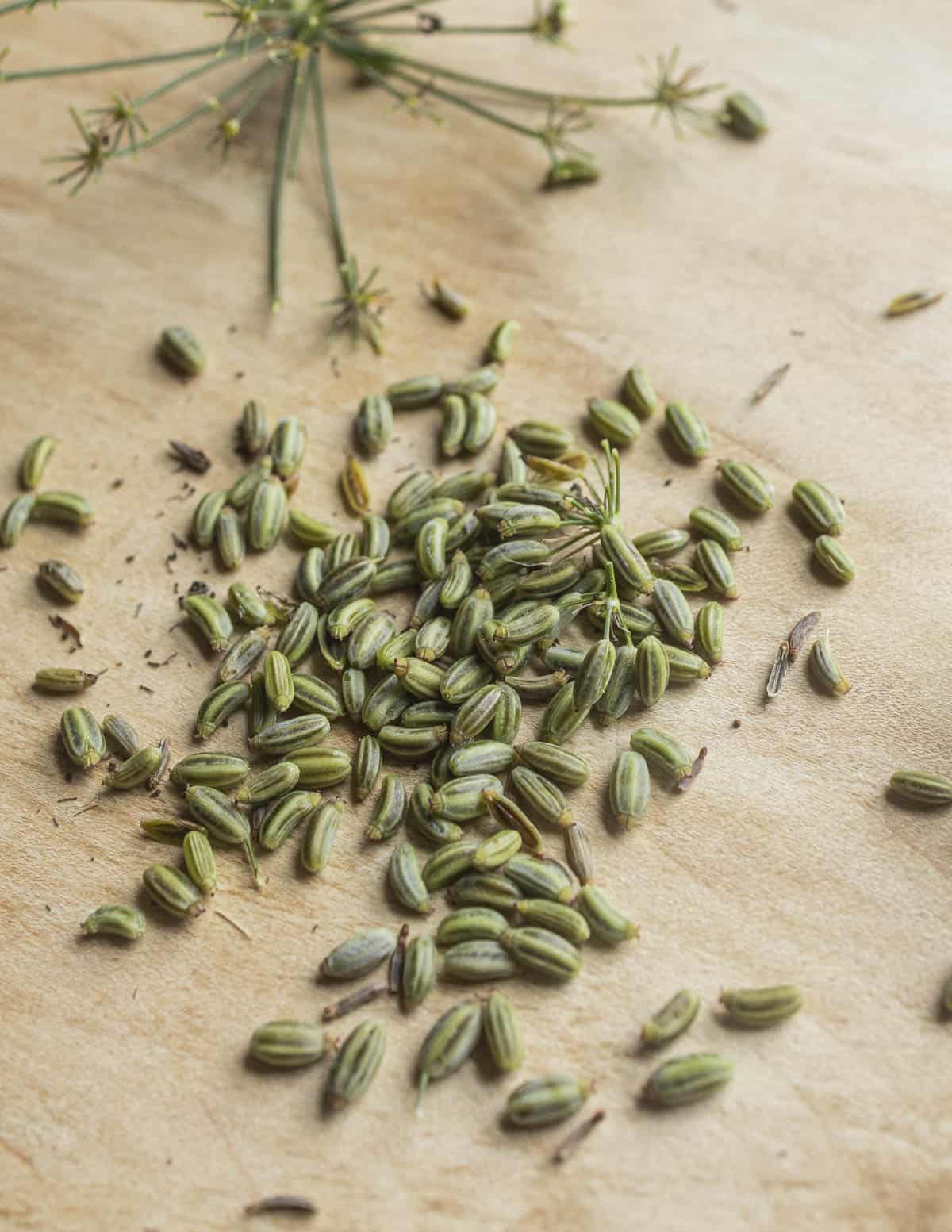
A Few Bronze Fennel Recipes and Uses
The first thing to do is to pick a few fronds and add them to a salad, or as a garnish in recipes where you'd like a licorice flavor.
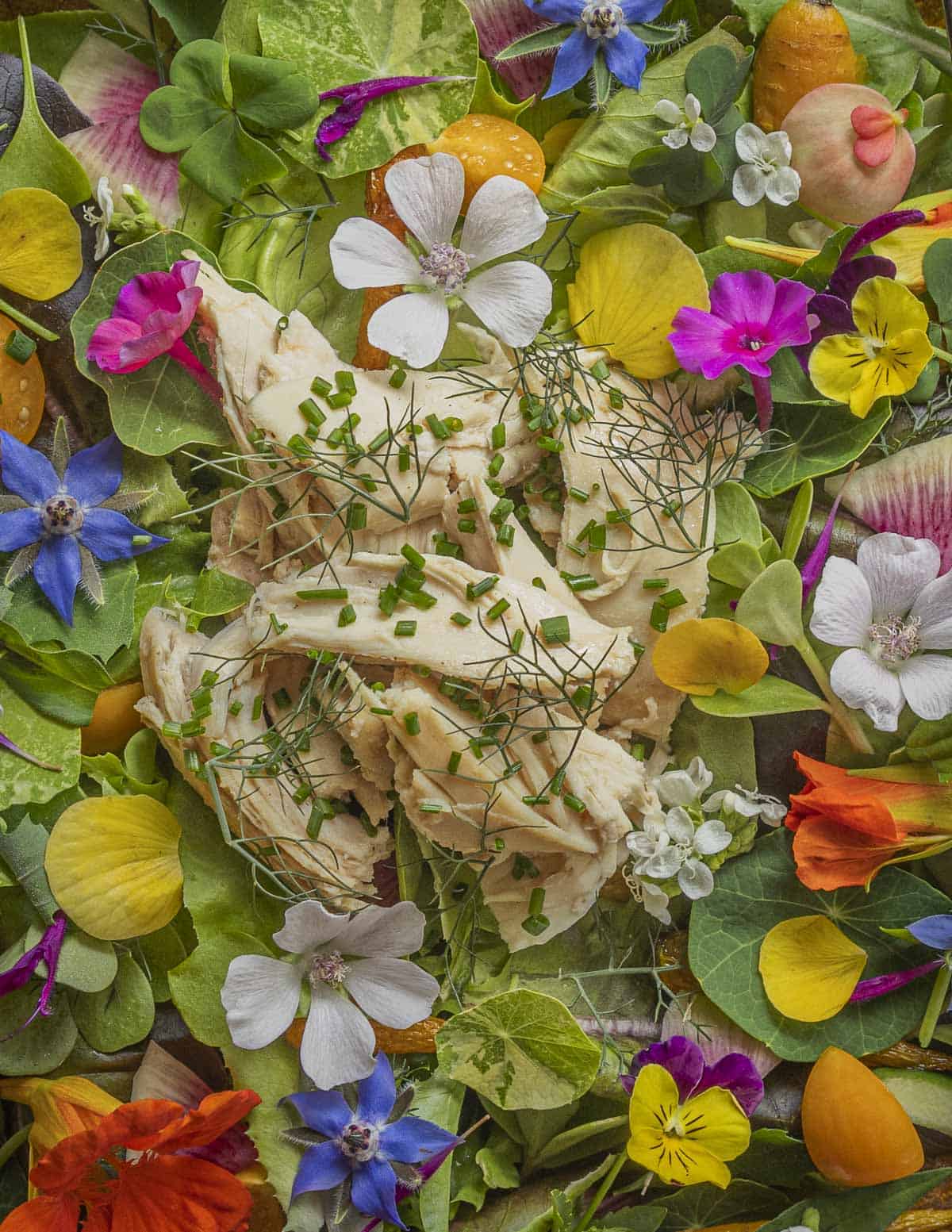
Unlike typical garden fennel or wild fennel, the licorice flavor is strong enough that you'll get pops of flavor here and there, as you would from adding a handful of small basil or cilantro leaves.
Like wild fennel, the seeds are sweet, but not in a way that would detract from savory dishes and they can be used anywhere you'd use fennel or aniseseed.
Fennel is a natural pairing with pork, and I use the seeds in all kinds of charcuterie. Homemade salami, coppas and porchetta, to the wild fennel ham and paw paw salad pictured below.
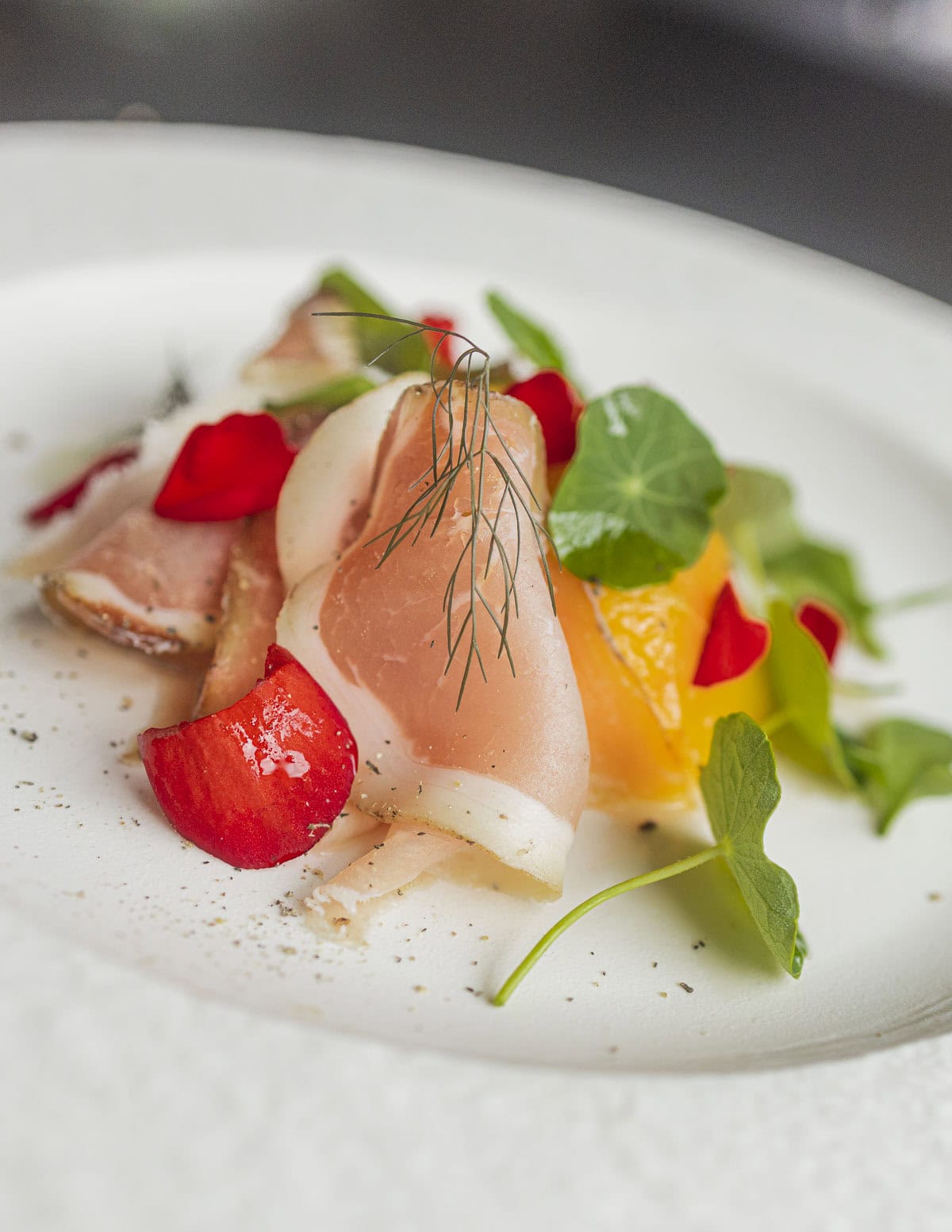
Of course the seeds make an excellent Italian fennel sausage. Gleaned from Roman master butcher Fillipo Caffari my recipe is simple, and probably my favorite sausage of all time. The depth of flavor you get from only five ingredients and a little technique is magic. It'll be in my next book.
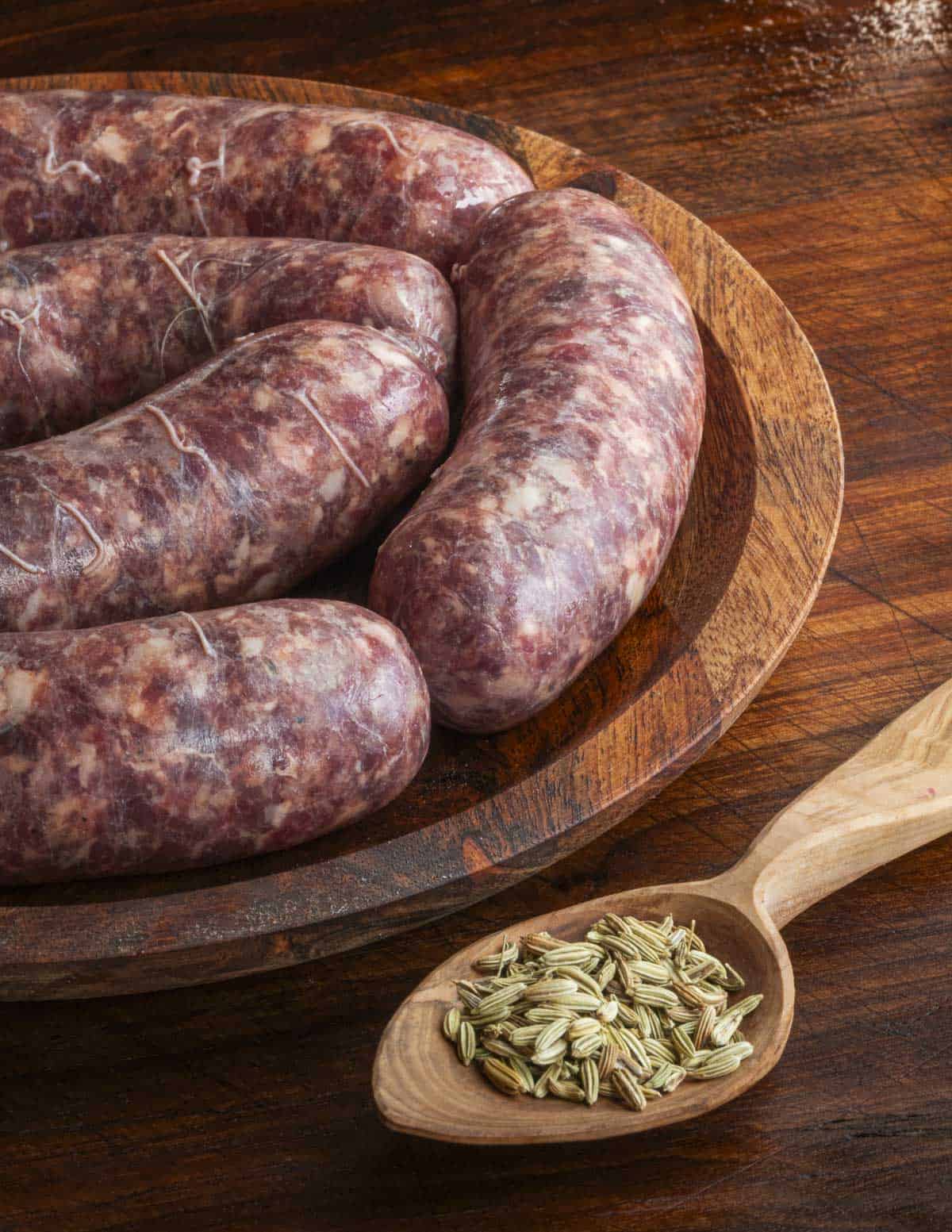
The flavor of licorice is also good with fish and shellfish. A pinch of ground seeds or fronds can liven up a bowl of mussels or clams, or the seeds can be used in rubs and seasonings for fish like fatty salmon or lake trout.
The uses aren't limited to savory meats and salads either. Like ginger, fennel seed tea is known to aid digestion. I've been drinking some out of a tea set from my Great Aunt Ethel this week (thanks Mom!).
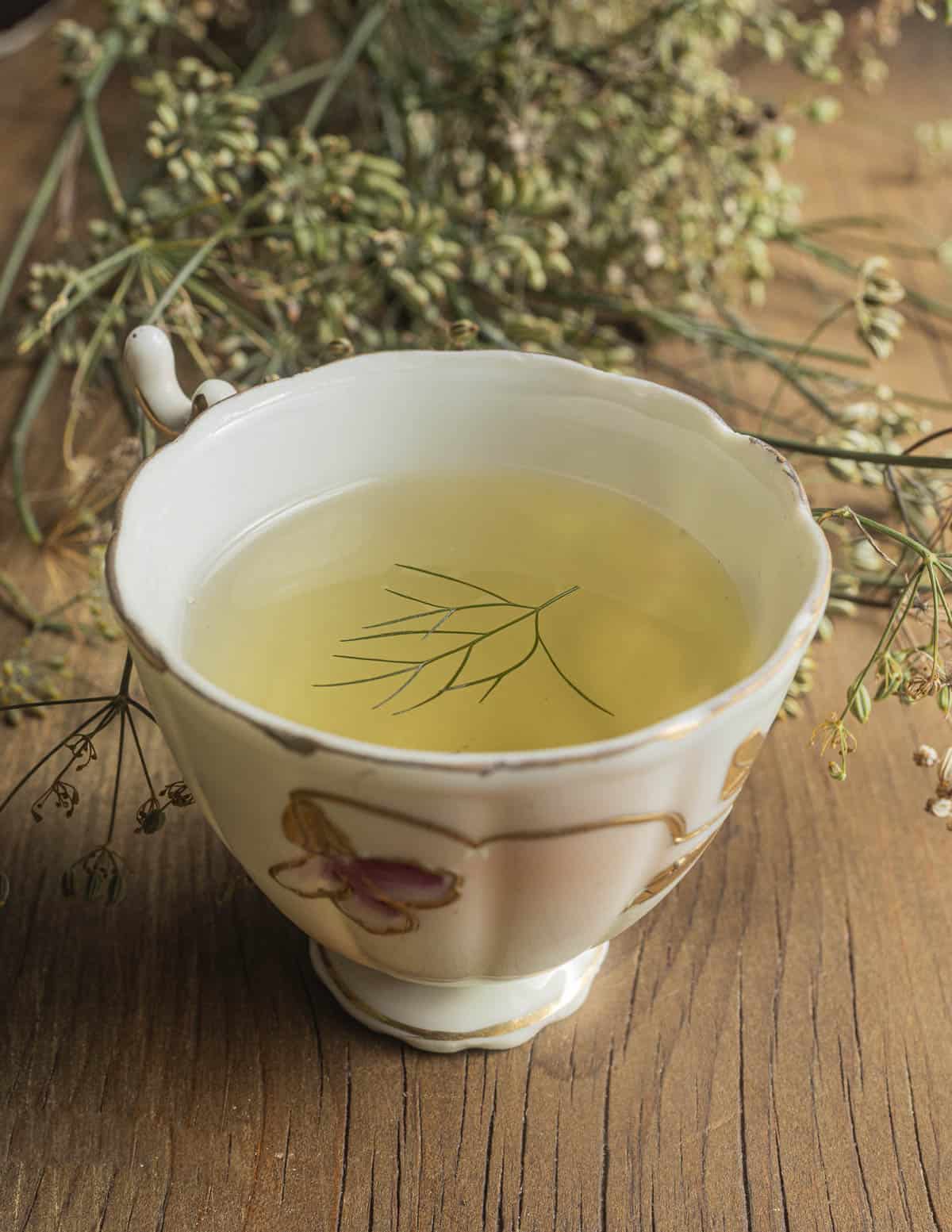
Fennel is also a well known ingredient in spirits, and there's plenty of videos online that can walk you through making a simple homemade fennel liqueur from the green seeds, fronds, flowers or a combination. It's excellent.
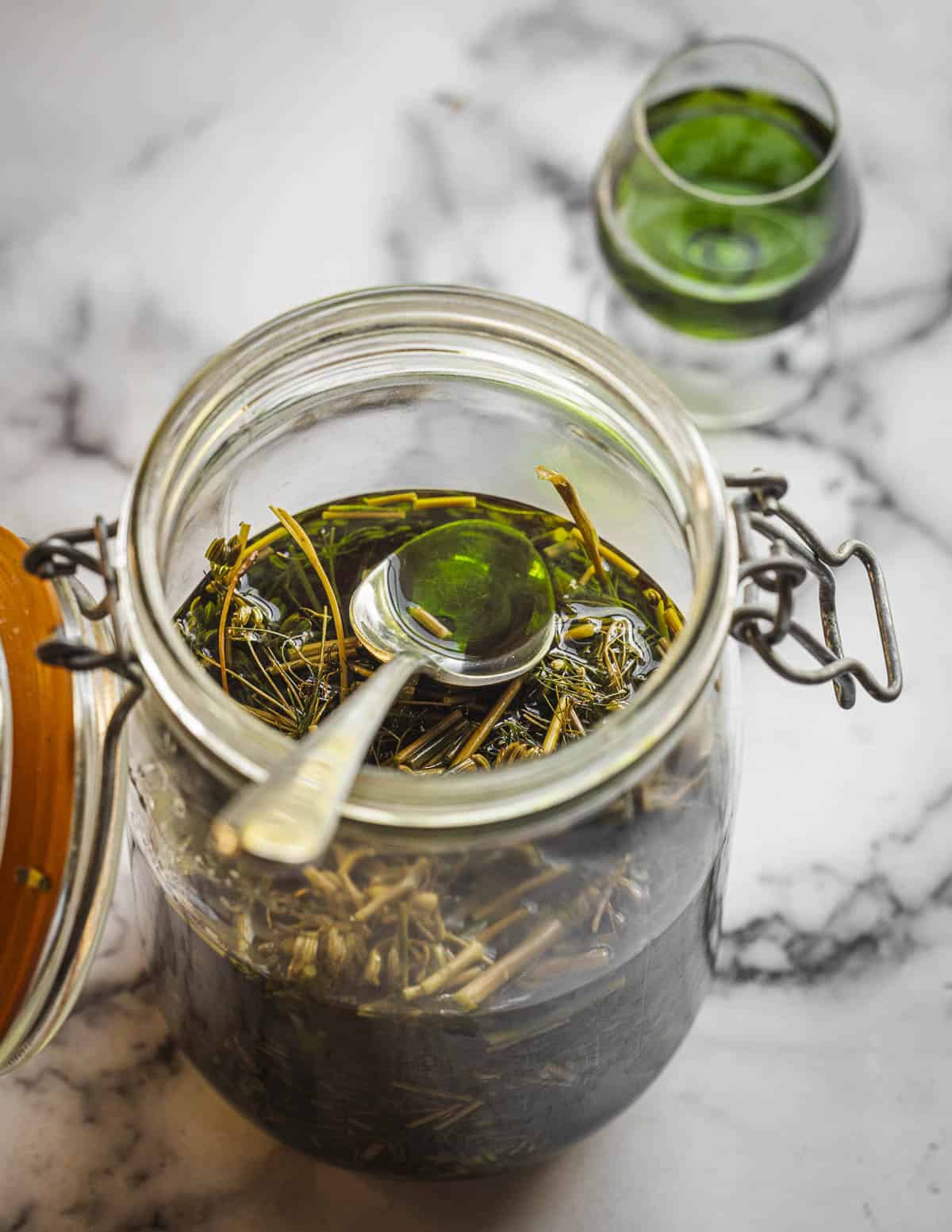
To make a liqueur, cut up green fennel fronds, stems, seeds and flowers, pack in a jar and cover with everclear (96% alcohol). Strain after 30 days, thin with an equal quantity of water and sweeten with sugar or maple syrup to taste. It makes sambuca seem tame. I usually store it in the freezer, like limoncello.
Finally, growing this herb was the nudge I needed to make a batch of tortas de aceite, a sort of oil-based cracker dusted with sugar and scented with fennel or anise seeds I learned of through Jacques Chibois, one of my favorite chefs.
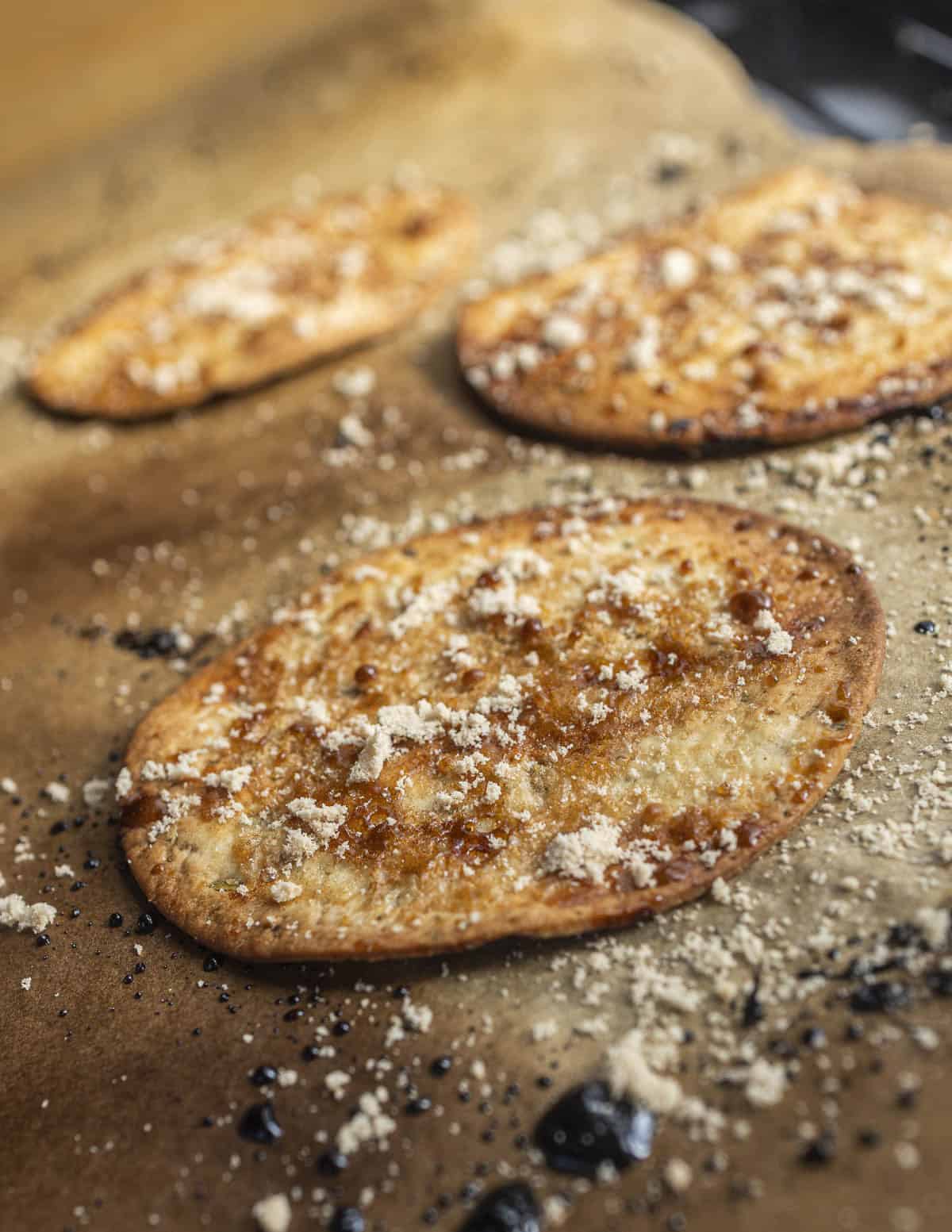
They make an interesting snack, and make me want to play with fennel desserts. I loosely followed this recipe.
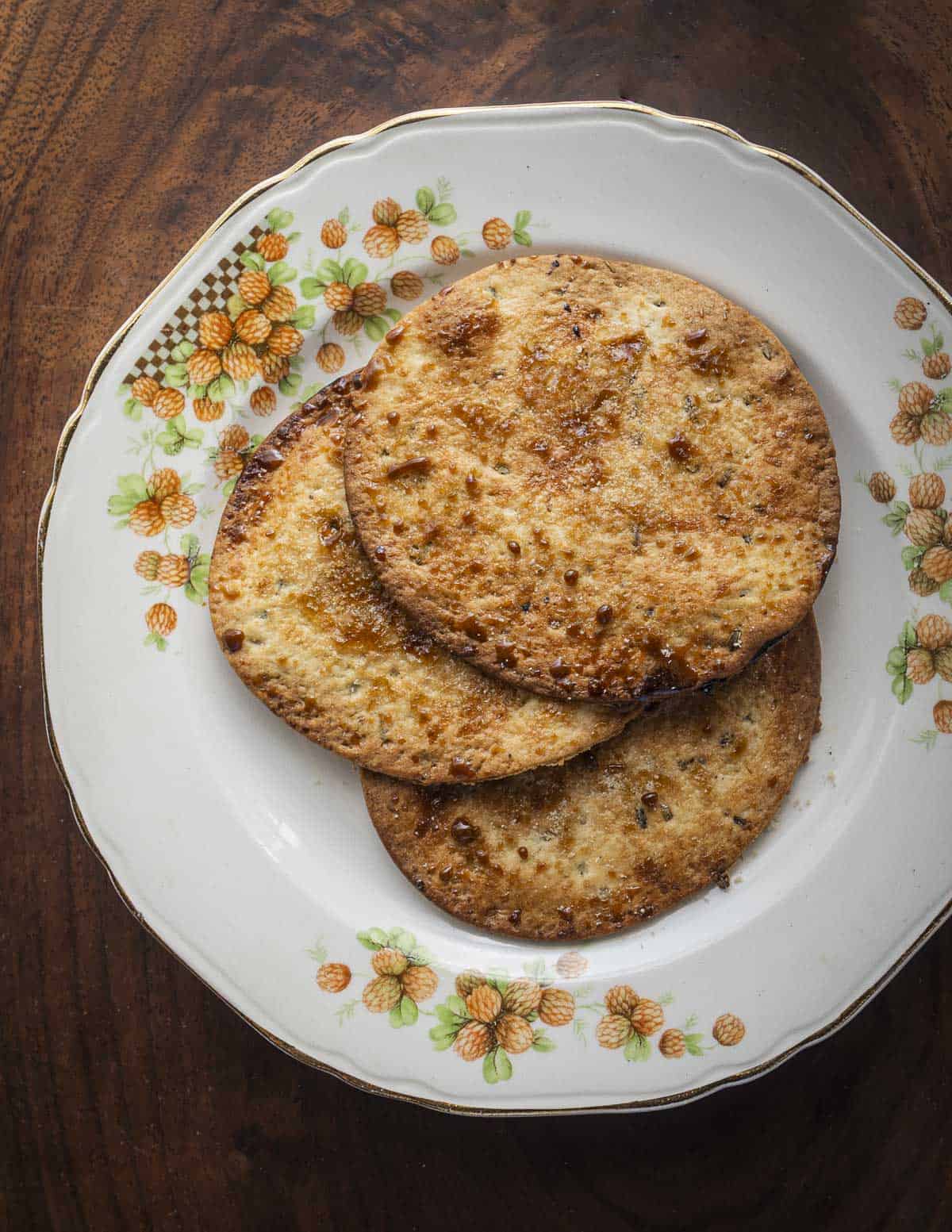
Do you know this plant or grow it yourself? Please leave a comment and share if you do.

Sarah Yarborough
I love bronze fennel and let it self sow in the pollinator garden (NC, zone 7b).
I enjoy/use all parts of the plant, but the young flowers are my favourite. I find them sweeter than the dry seeds if you catch them early in the season. They're delicious and pretty on salads/fish/pork (anywhere you'd use the fronds to garnish). Just pinch the little stems off and drop the flowers on top. The flowers are also my secret ingredient in fig jam.
Love your articles + cookbook. Thanks for sharing your knowledge!
Alan Bergo
Thanks Sarah.
Gloria
I live in Tuscany and wild fennel is pretty common around here! I'd like to share a couple more recipes you might never heard of: One is Ballotte, basically just chestnuts boiled in cold water with a drizzle of oil, a pich of salt and fennel seeds, and the other one is Bardiccio, a sausage made from pork meat, interiors and blood. There's not an "official" recipe, as it usally happens with regional food, but it is very common in the Val di Sieve area. Thank you for you blog, even tho i can't always forage the species you mention i find it very interesting and inspiring all the same!
Alan Bergo
Thanks Gloria this is terrific.
Carla Beaudet
HAHAHA! Timing is everything. Just yesterday I dug up the 6'tall bronze fennel forest along the S. Deer fence around my garden because a groundhog had made access points by digging under it. I had to dig up the fennel to bury a few inches of fence in an attempt to keep him out. Bronze fennel is easy to cut, but it makes formidable roots (which I should have tasted - doh!). I took the opportunity to re-distribute the root clusters before filling the trench. I have no idea whether or not they'll overwinter here in Zone 5, but I'm not worried about this stuff coming back. What grew this year came from a handful of seeds I'd put out there in 2023, and either overwintered or self-seeded two years in a row now. I keep having to pull baby plants from other parts of the garden, but it's not a big deal.
It's a great plant for all the reasons you cite. I agree with commenter Ellen that the best time to get those seeds are when they are still green; as they dry outdoors, they seem to acquire a black surface mold that can't be good for the flavor. The color of your liqueur is INTENSE! It has me wondering why I bother to buy Pastis, Ouzo, or Sambuca. But the green stage of my fennel is over for the year, so I'll have to wait until next year to try it.
Alan Bergo
Thanks Carla, nice to hear from you.
phyllis bergo
fennel tea is great for easing digestive distress. I have a bag of ground fennel that I use but I do have to strain it so my tea isn't gritty. I also use 1 tsp of ground fennel + 1 tsp ground anise + 1 tsp of ground caraway in making Swedish Limpa bread (with grated orange rind also) . Great flavor.
Alan Bergo
Thanks Grandma.
Andrew Skorzewski
Hi Alan,
Great article. Lots of new ideas for me to try.
I’ve been growing bronze fennel for a few years and never tire of its myriad uses throughout its growing cycle. One of my favourites is the pollen. Just dry the flower heads when they are full of pollen and the sift out the pollen. As I’m sure you know fennel pollen is an expensive trendy ingredient. My homemade version beats out any commercial ones I’ve had.
Thanks, Andrew
Alan Bergo
Thanks, I always wondered how they harvest fennel pollen, it's crazy expensive.
Jay Nelson
Thanks for the introduction. It apparently grows well in Central Texas and I'm intrigued. How would it work with pasta con le sarda? Is it similar to Sicilian wild fennel?
Alan Bergo
Yep I'd imagine it would do even better for you than it does for me up here in MN. Re: sardine pasta, I'd add fronds to it or even better the flowers. I also use to make a super rustic pasta where you toss piping hot noodles in a paste of cracked pepper, toasted ground fennel, olive oil and pecorino.
Jay Nelson
Great suggestion. Thank you. It's added to my list.
Tristan Sheridan
You seem to use "anis" and "liquorice" interchangeably. I find both flavors quite distinct but in the US people don't seem to taste the difference? Would ou say bronze fennel is more one or the other?
Alan Bergo
Great point, I do use them interchangeably. That makes me wonder why we don't generally describe carrot/Apiaceae flavors as anise, since licorice comes from roots.
Janna Wachter
Love your posts that come to my email box. I live in Seattle and I’m a professional gardener. There were years when I just couldn’t stand that fennel, it was everywhere. Then I figured out how to tame it. If you harvest the seeds before they’re ripe and falling, you’ll only have one plant in your garden, and that’s plenty. I have one that gets to be 6+ feet tall. I harvest fronds, branches, pollen, seeds from the time it sprouts out of the ground until I cut it down in the late fall. As an aside, if you stick those long stems somewhere hidden, moths and bees that lay eggs inside there have a nice home. Can’t wait to make that vinegar. You’ve inspired me to make so many different kinds of vinegar. This is a new one I don’t drink, but that liqueur is so GREEN!!
Alan Bergo
Thanks Jana. I forget how tall they can get. Mine are puny by comparison up here 🙂
Dawn Sodt
I grow bulb fennel as I love the crunchy licorice flavor in salads and I like to roast the bulbs with some parmesan and butter. I’ve made liquor from it and candied the stems. This is the first year I’ve let one go to seed and am currently drying the first ones to mature and waiting for the last ones to get there. Thank you for this post about them giving me more ideas for their usage! I’d like to try the crackers and to add it to sausage.
Alan Bergo
Oh yeah, a fresh shaved fennel salad is hard to beat. Farmers I've bought from in MN seem to have hard time getting a nice fat bulb.
Merce
A lady down the street from me grows bronze fennel in her front garden. It is visually striking and seems to do well in our 7b zone. I'm particularly intrigued by your comparison to California wild fennel, which has to be one of the sights and smells I most associate with my years living there. Among your many excellent suggestions for its use, I'm wanting to try it with some steamed clams and maybe the sausage if I can muster up that level of "make" but the liqueur is the one most calling my name! Worth searching out enough to make that recipe, I'd say!
Alan Bergo
Thanks Merce. I plan on breaking out the liqueur for the holidays. It's as potent with fennel flavor as citrus is with limoncello. This year I'm going to omit the sugar from half to cook with like pernod.
Ellen Rubenstein Chelmis
My favorite parts of the bronze fennel plants, which I let go wherever they wish in my yard (along with Passiflora incarnata), are the green seeds. I gather panicles when the seeds are at their fattest stage before they start to dry, pick them off in front of a good movie (it's a purely tactile harvest), and drop them in a jar with a good vinegar - right now I'm stuck on white balsamic, which works perfectly. "Pickled", they keep their flavor and last indefinitely without requiring refrigeration, a bonus, if not mandatory, because I have two refrigerators full of all kinds of preservations to the point that there's little room for fresh food! I toss the seeds into all manner of dishes, and love that I can experience that lovely pop of flavor any time, though it's definitely best when I grab a few just passing by in my garden forages. Thanks for featuring this wonderful plant - I share your passion for it and its flavor, and you enlightened me to a couple new uses!
Alan Bergo
Thanks Ellen, and wow that's such a great idea! I've fermented green seeds in brine to preserve them, but you don't get a sweet fennel vinegar as a byproduct.
Molly Younger
I’m on the west coast and the green fennel is prolific. I love the vinegar! I packed the flowers in with some ACV and use it as drinking vinegar or sprinkled on fish and chips. So yummy! Also with fish, I make a relish with the fresh spring shoots, citrus (meat, juice, and zest) of lemon, orange, and lime, shallots, olive oil, and cherry tomatoes and it’s gorgeous on some lingcod. And fennel pollen sprinkled on sugar cookie glaze. That delicate touch on sweet or savory is lovely.
Alan Bergo
It’s crazy how much of it you guys have on the coast. First time I went to SF I couldn’t believe it. Nasturtiums too.
Steve Brill
I took some bronze fennel that my wife was growing as an ornamental, and stuffed some into the cavity of some branzino that I roasted. It added a nice flavor, as well as being aromatic.
Alan Bergo
Yeah it's super versatile and hard to use too much.
Cheryl Burleson
Hi!I love your book, when will your new one be out? Thanks, Cheryl Burleson
Alan Bergo
Manuscript due Jan 1 and I'm working on it every day. Right now I can only say 2026 for certain, hopefully in stores by summer but we'll see. I need to refresh older seasonal work for my newsletter for the rest of '25 to keep my sanity.